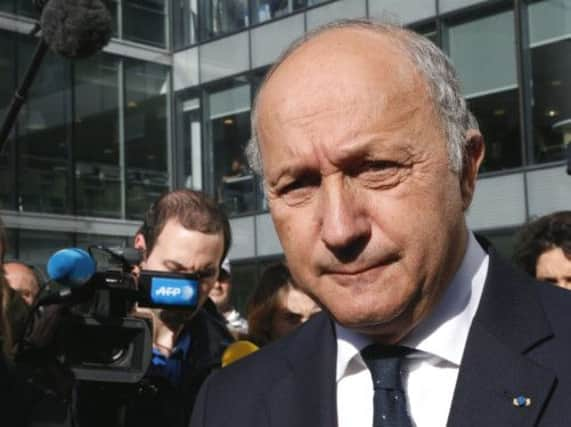French journalists in Mali ‘shot in cold blood’


Radio journalists Claude Verlon and Ghislaine Dupont were abducted after interviewing a member of the MNLA Tuareg separatist group in northern Mali.
Their bodies were found on Saturday by a French patrol eight miles outside Kidal, the birthplace of a Tuareg uprising last year that plunged Mali into chaos, leading to a coup in the capital Bamako and the occupation of the northern half of the country by militants linked to al-Qaeda.
Advertisement
Hide AdAdvertisement
Hide AdFull details of why the journalists were killed and who carried out the attack were not immediately clear, but foreign minister Laurent Fabius put the blame firmly on militants operating in the region.
“The assassins are those that we are fighting, the terrorist groups that refuse democracy and elections,” Mr Fabius said, calling the killings “heinous and revolting”.
He said French forces had tried to find the hostage-takers, but to no avail.
Paris launched air strikes and sent thousands of soldiers into Mali at the start of the year to drive back al-Qaeda-linked rebels it said could turn the West African country into a base for international attacks.
Although Malian, United Nations and French troops are stationed in Kidal, none are heavily deployed. The Malian army’s contingent is generally symbolic and soldiers are confined to their base.
There are some 200 UN peacekeepers who are officially in control of security and France also has about 200 troops, though their operations in the region have focused on the Adrar des Ifoghas mountains to the north, which served for years as a hideout for militants.
“Security in the area and the surrounding areas will be increased,” Mr Fabius said after a specially convened meeting between president François Hollande and key cabinet ministers. He did not elaborate.
Mali government spokesman Mahamane Baby echoed those comments saying president Ibrahim Boubacar Keita and Mr Hollande had agreed that the status quo could not be tolerated during a telephone call late on Saturday.
Advertisement
Hide AdAdvertisement
Hide Ad“The two heads of state agreed that the situation in Kidal was unacceptable and that a change was necessary to ensure the security of all Malians and foreigners present there,” he said.
According to the Ouagadougou agreement signed by Mali’s government and rebel groups ahead of the July elections that aimed to pave the way for a peace deal across the country, rebel fighters were due to be confined to barracks before the new government launched a final round of peace talks.
However, MNLA fighters still operate in and around Kidal, much to the frustration of Bamako.
The journalists’ deaths came just days after four French hostages kidnapped in Niger by al-Qaeda’s North African (AQIM) wing were released following secret talks with officials from the West African country. They had been held for three years.
Pierre Boilley, an Africa expert at the Centre for National Scientific Research, said the attack was likely to have been carried out by groups linked to AQIM or to a lesser degree people trying to undermine political talks between the central government and northern rebels.
“It could also have been vengeance. There are difficulties within AQIM. Some may have benefited from the hostages’ ransom, and others may have been neglected,” he said.